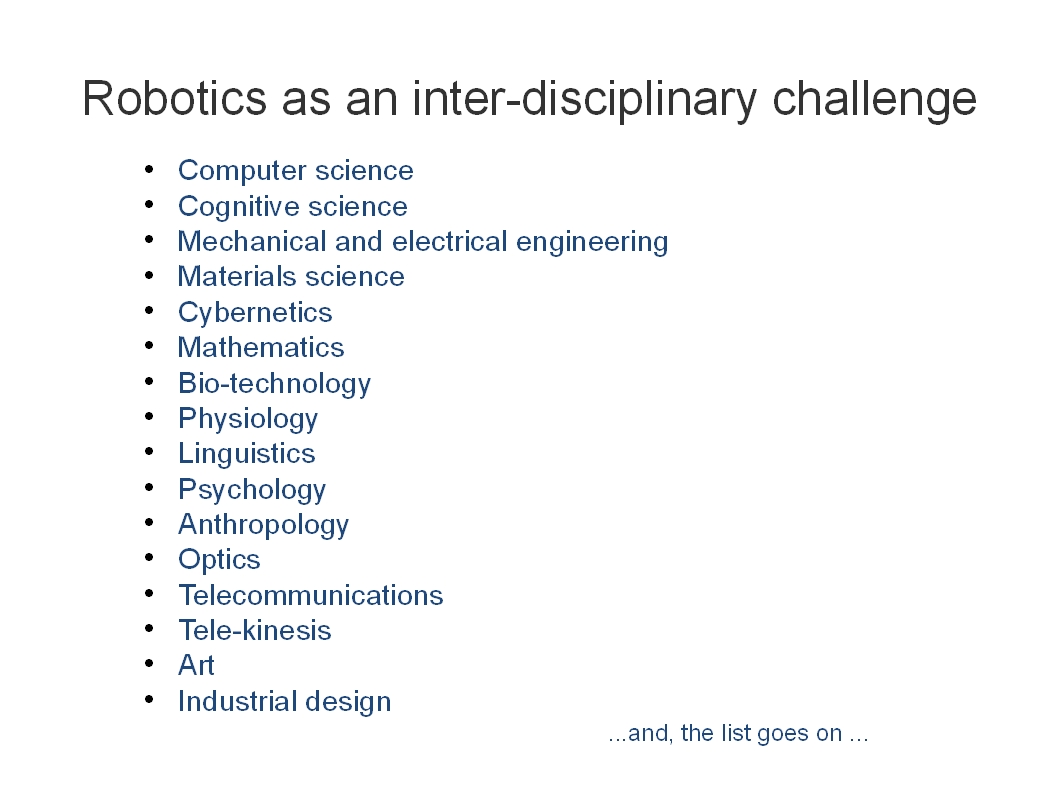Robotics development has gradually incorporated an exceptionally broad disciplinary spectrum. With respect to the development of artificial human-like reasoning in particular, the critique which has perhaps affected the AI community the most, came originally from the philosopher and phenomenologist, Hubert Dreyfus (1992). He studied what AI researchers were doing from the 1950s onward, working with the representational model of mind and later models of neural networks and reinforced learning. He evaluated their reasoning with respect to the goal to create human-like intelligence.
The thrust of Dreyfus' critique lies in, what he considers to be, fundamental flaws in the conception of what having awareness and understanding of the world, actually stands for. The human is always already "in the world", always already "the body". Accordingly, any awareness and knowledge can only be acquired by being in the world over time and living the body. In particular, what Dreyfus calls the biological and psychological assumptions in AI research—the brain is hardware and the mind is software—are two essential flaws in reasoning about the mind because they effectively disembody the human. In other words, it is not enough to have a brain (hardware on which software can run) in order to be meaningful and intelligent.
